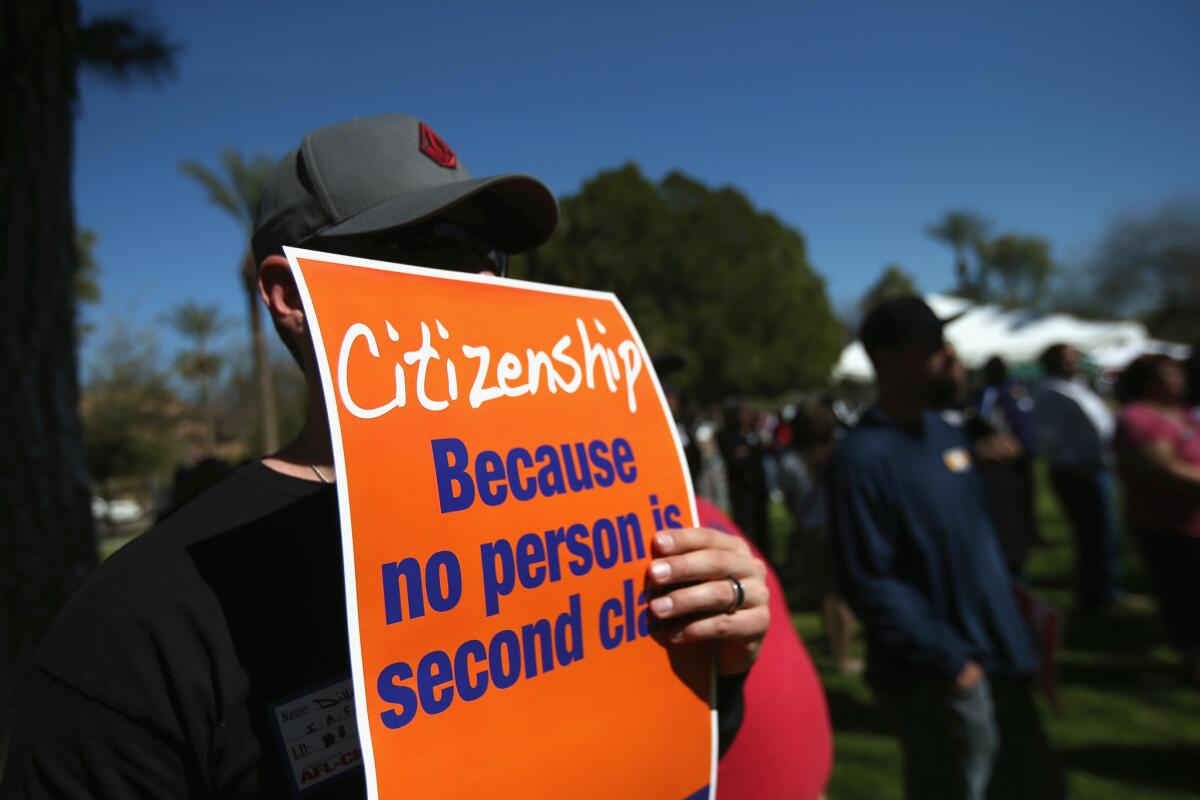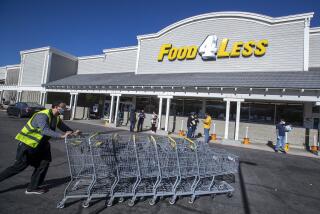Executives’ immigration dilemma: ‘We can’t find the workers’

SCOTTSDALE, Ariz. — Aslam Khan, owner of 165 Church’s Chicken eateries, still has the text message — a plea from a general manager at one of his restaurants in Indiana:
“Please don’t fire me. If I lose my job, I lose everything. Please let me stay in the company.”
The request had moved Khan so much that he read it aloud to a round table of business executives meeting in Scottsdale this week to discuss their frustrations and concerns about immigration law — and their hope Congress passes some sort of reform to address those worries.
PHOTO GALLERY: The ongoing debate over immigration reform
The Indiana restaurant manager, Khan said, was a 15-year veteran with the company who had worked his way up through the ranks to take the helm of a high-selling restaurant. But the man was flagged by a federal program designed to check the status of workers.
The Web-based E-Verify system had coughed up the man’s name along with those of about 100 employees, a quarter of them general managers. The system discovered the workers had provided Social Security numbers that didn’t match their names — a sign that they probably weren’t authorized to work in the country.
All those employees left. Khan said he lost out on loyal and hard workers, along with $1 million in recruiting, retraining and sales — all because he took the extra and voluntary step of using E-Verify to comply with immigration laws.
Such were the stories of the eight executives who discussed the possibility of immigration reform about a week after the Gang of Eight — a bipartisan group of U.S. senators — unveiled a plan to overhaul federal immigration laws, possibly opening paths to citizenship for an estimated 11 million people who are here illegally.
Most of the business owners, who were attending the Restaurant Leadership Conference, work in the food industry, and they were joined by executives from the gaming, nursing and home-care industries.
“We don’t want the bill blown up on one component or another,” said Stephen Caldeira, president and chief executive of the International Franchise Assn. Caldeira, who led the round table, was careful to express his support for the bill, calling it a “sound blueprint.”
Still, he said, the bill places caps on the number of visa workers and such workers would not account for even one-tenth of the estimated workers needed to meet the franchise industry’s forecasted growth over the next year.
During the first quarter of this year, the industry added 150,000 new jobs, Caldeira said, pointing to a report prepared by IHS Global Insight. There’s a real demand for workers, he said.
Steve Chavez, vice president of franchise operations for the Arizona-based Native New Yorker restaurant chain, has a constant need for mid-level managers.
Don Fox, chief executive of Firehouse Subs, echoed similar concerns, saying that even during the depths of the recession, his franchise managers had trouble filling entry-level jobs.
As Caldeira put it: “We want to employ Americans, but the fact of the matter is we can’t find the workers. We can’t even get them when the economy is slow — for whatever reason.”
Anti-illegal immigration activists have long contended that people who are in the country illegally drive down wages and are willing to work for less than U.S. citizens.
Fox said that simply wasn’t true, stating that the issue isn’t money. Americans simply aren’t willing to do the dirty work required for some of the entry-level jobs, he contended. He pointed to a manager at a franchise in the boomtown of Midvale, Texas, who is willing to pay employees up to $20 an hour to build sandwiches because he can’t find enough workers.
Most of the business leaders walked away feeling optimistic that some sort of immigration reform will come to fruition.
Khan, a naturalized U.S. citizen originally from Pakistan who worked his way from dishwasher to the largest franchisee for Church’s Chicken, lamented dismissing his worker in Indiana. The manager had a way with people. He reflected the community he served. He’d built a large and loyal clientele and knew his patrons well.
Still, Kahn said, he had to “do the right thing” and follow the law. He still keeps tabs on the worker, he said. The man now works for Kahn’s competitor, the chicken franchise next door.
[For the Record, 10:07 a.m. PDT April 25: An earlier version of this post identified the chief executive of Firehouse Subs as Dan Fox. His name is Don Fox.]
ALSO:
House votes to honor victims of 1963 Birmingham bombing
Las Vegas cabbies overcharged tourists $15 million, audit says
Nevada senator surprised himself by coming out in gay marriage debate
More to Read
Sign up for Essential California
The most important California stories and recommendations in your inbox every morning.
You may occasionally receive promotional content from the Los Angeles Times.










